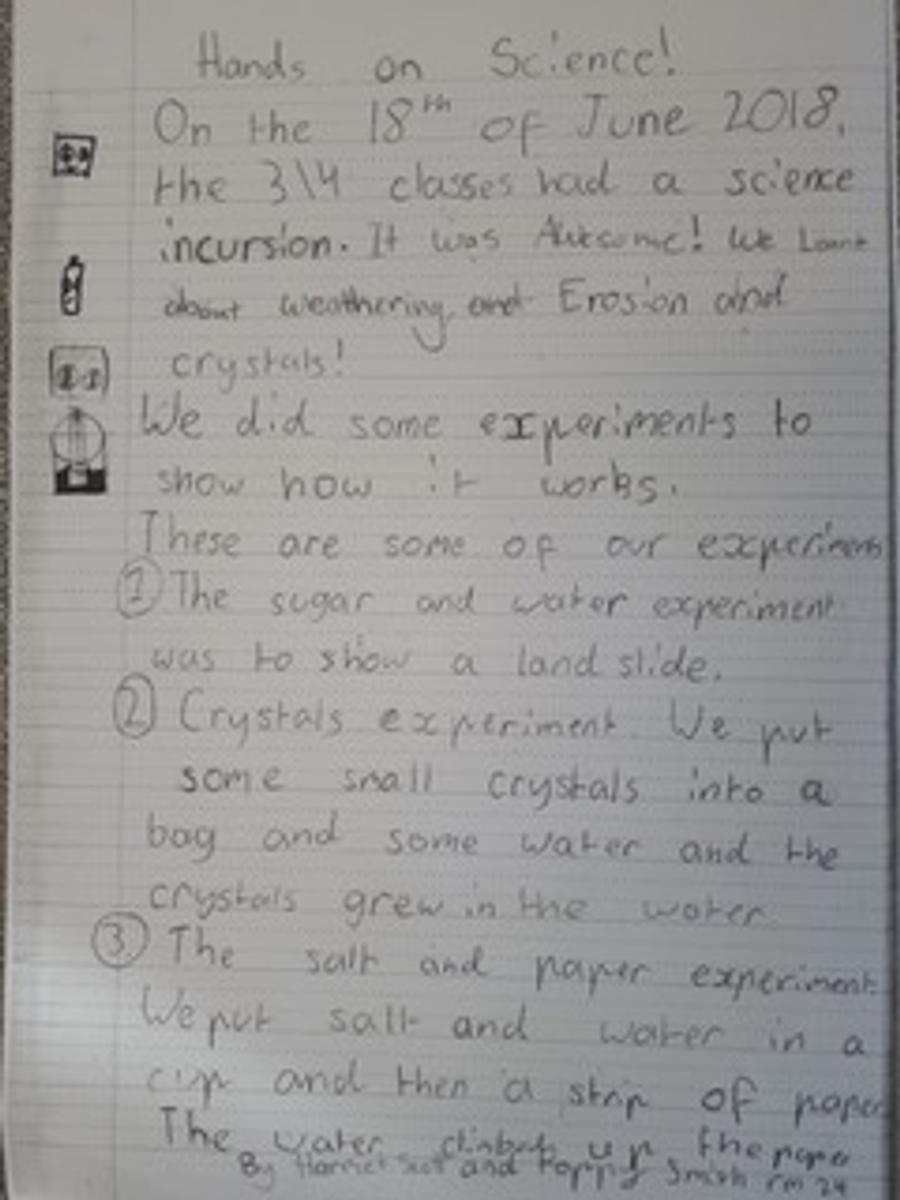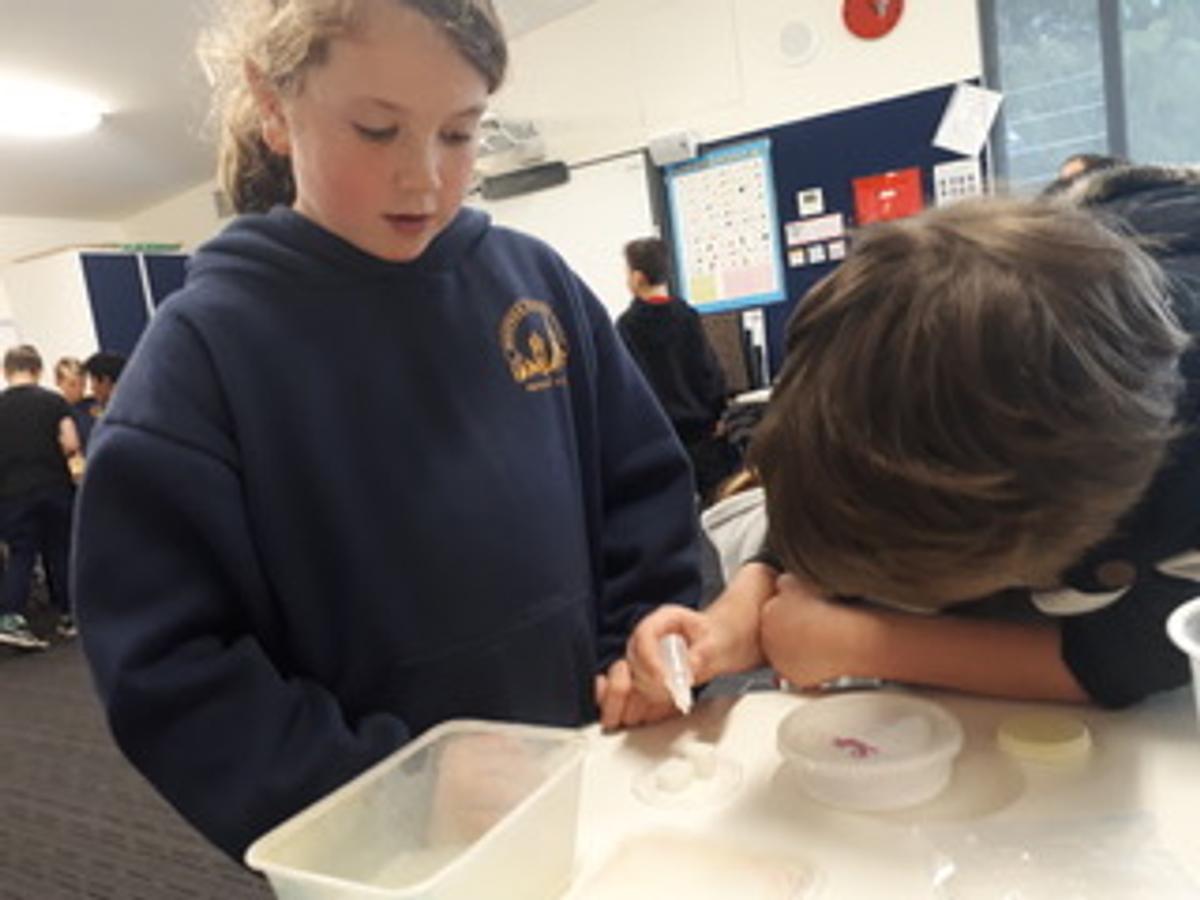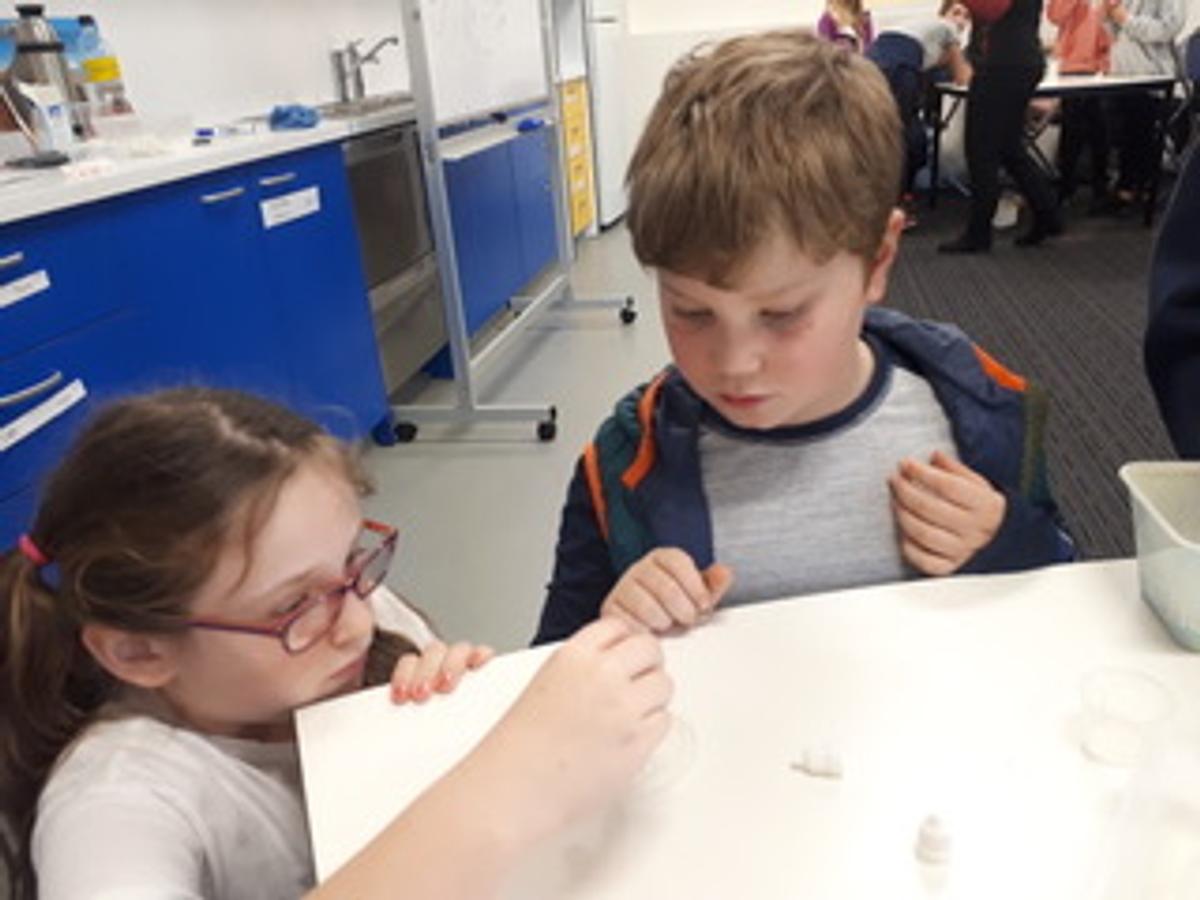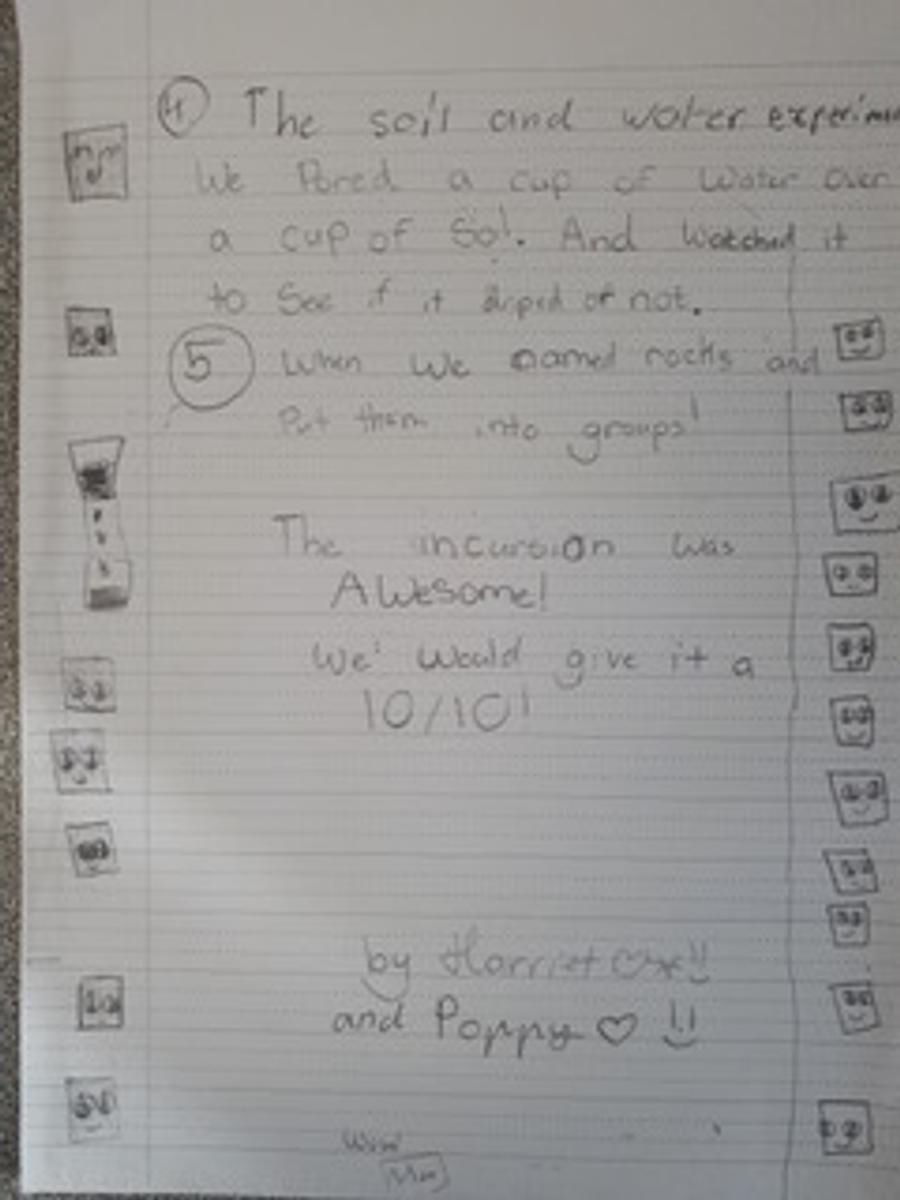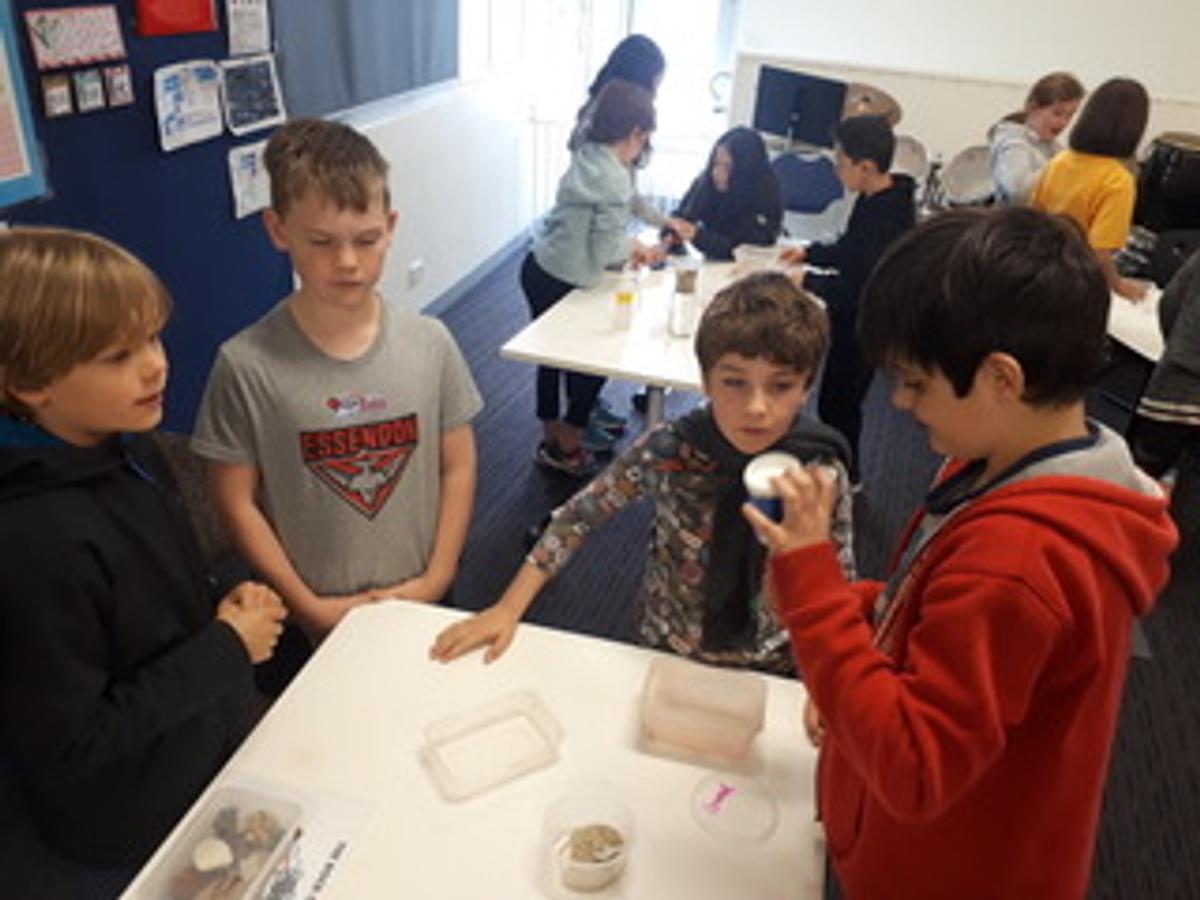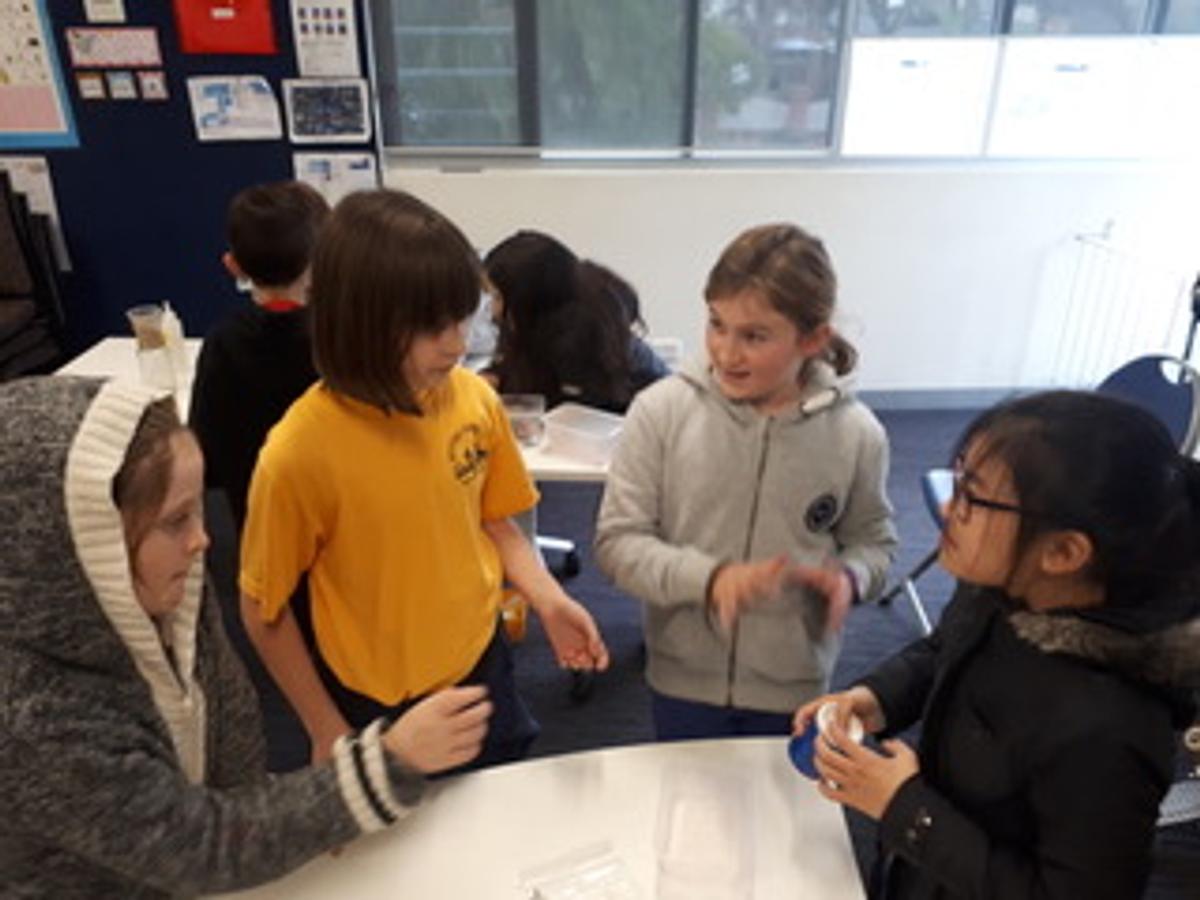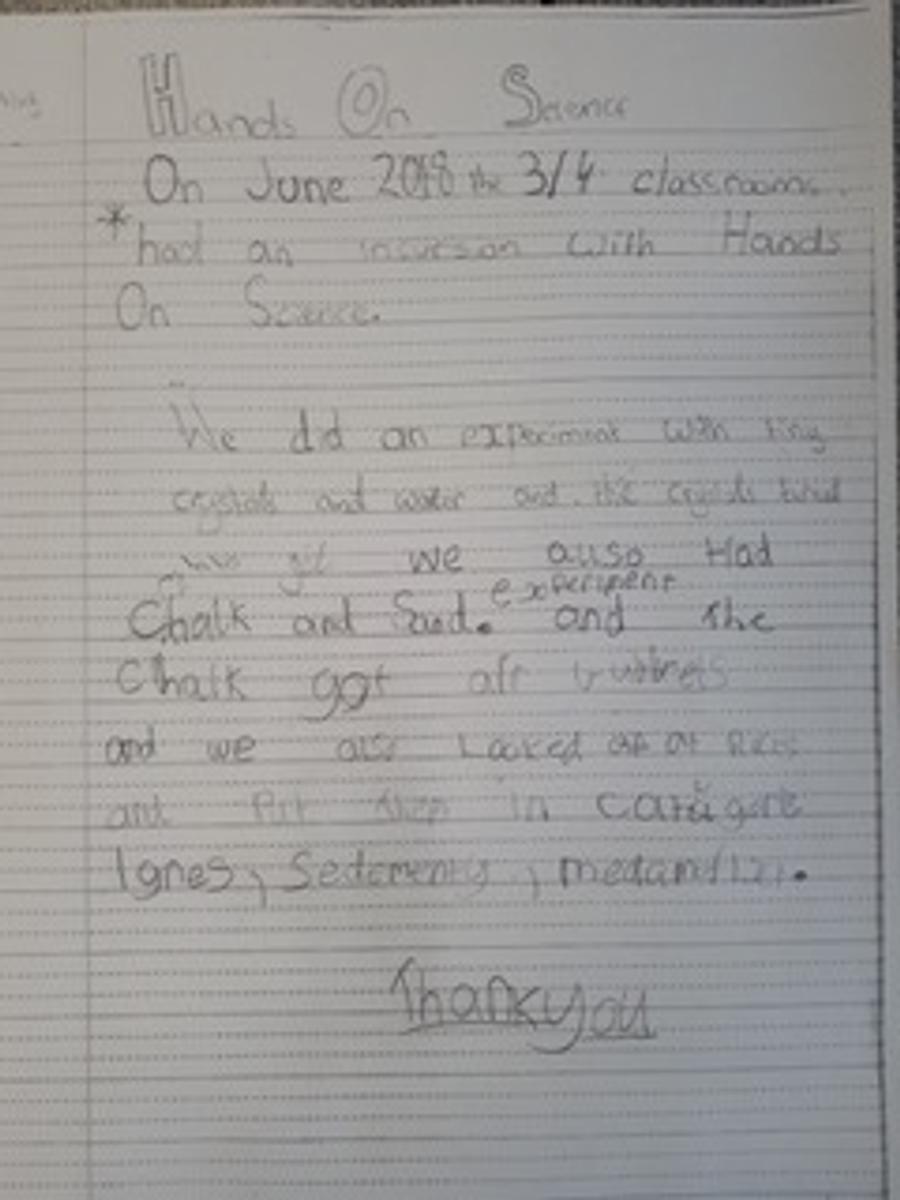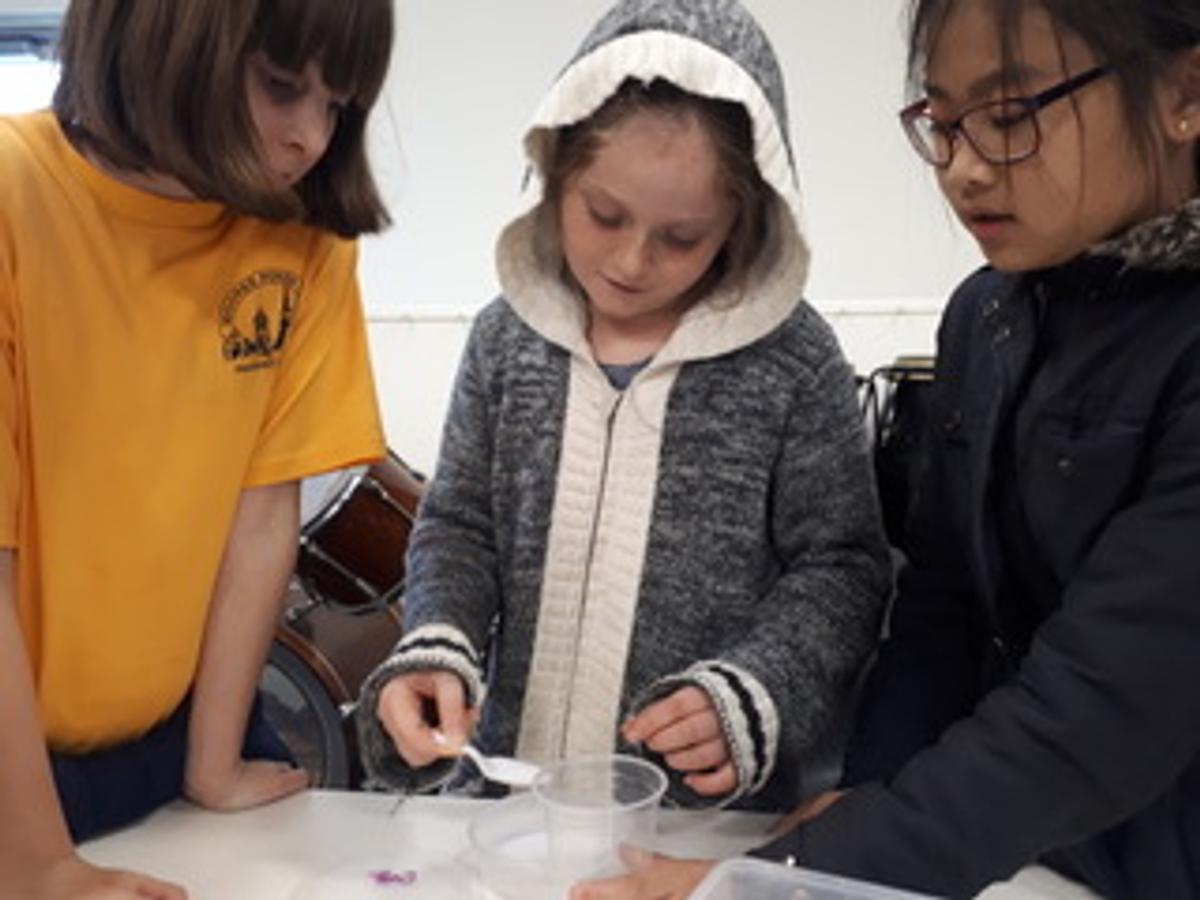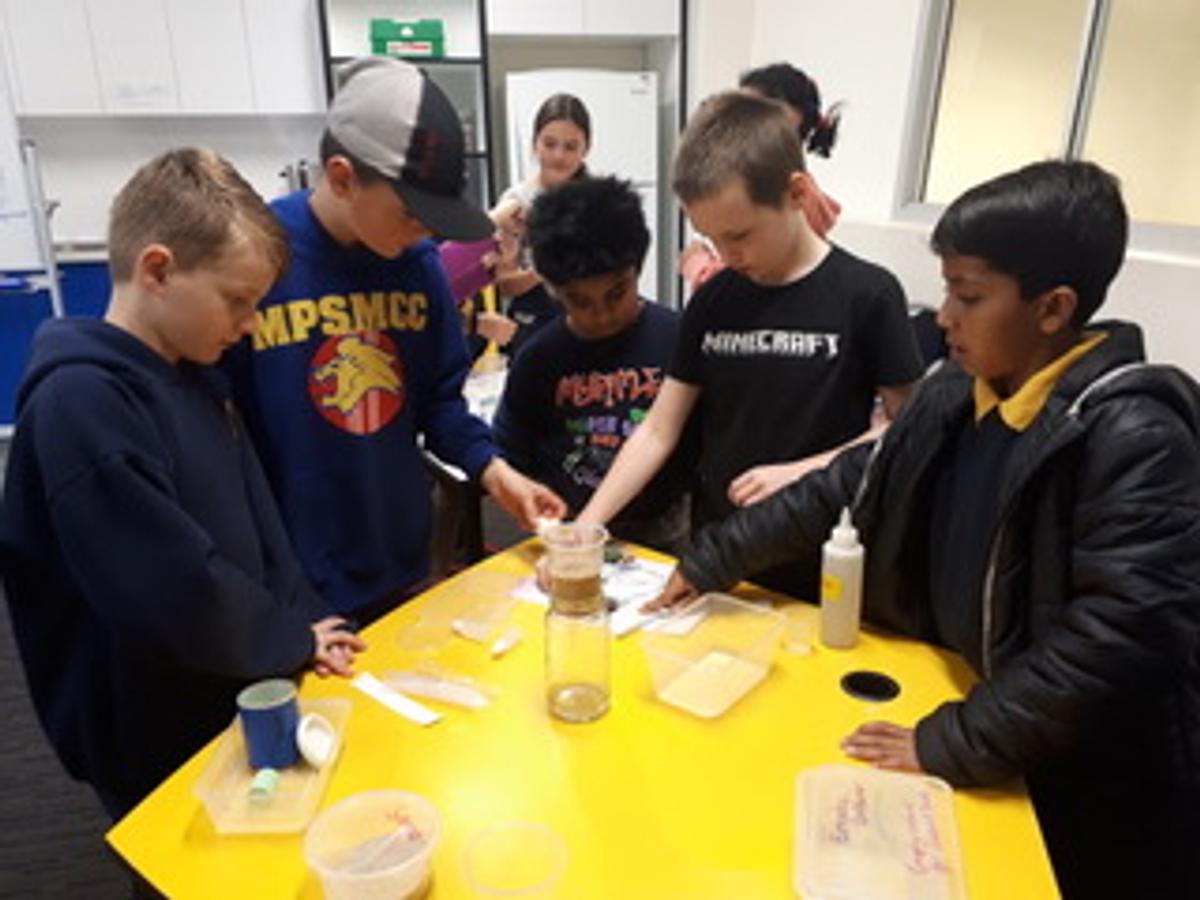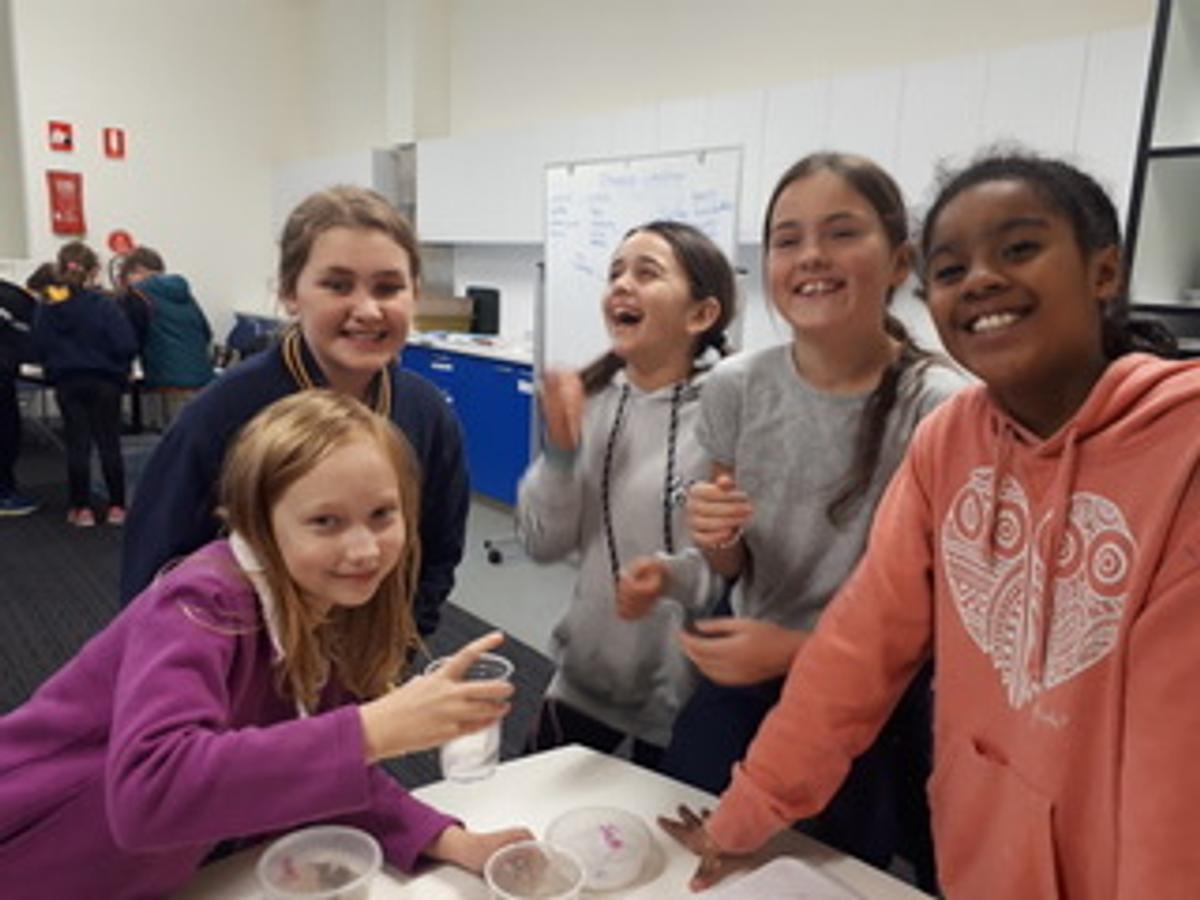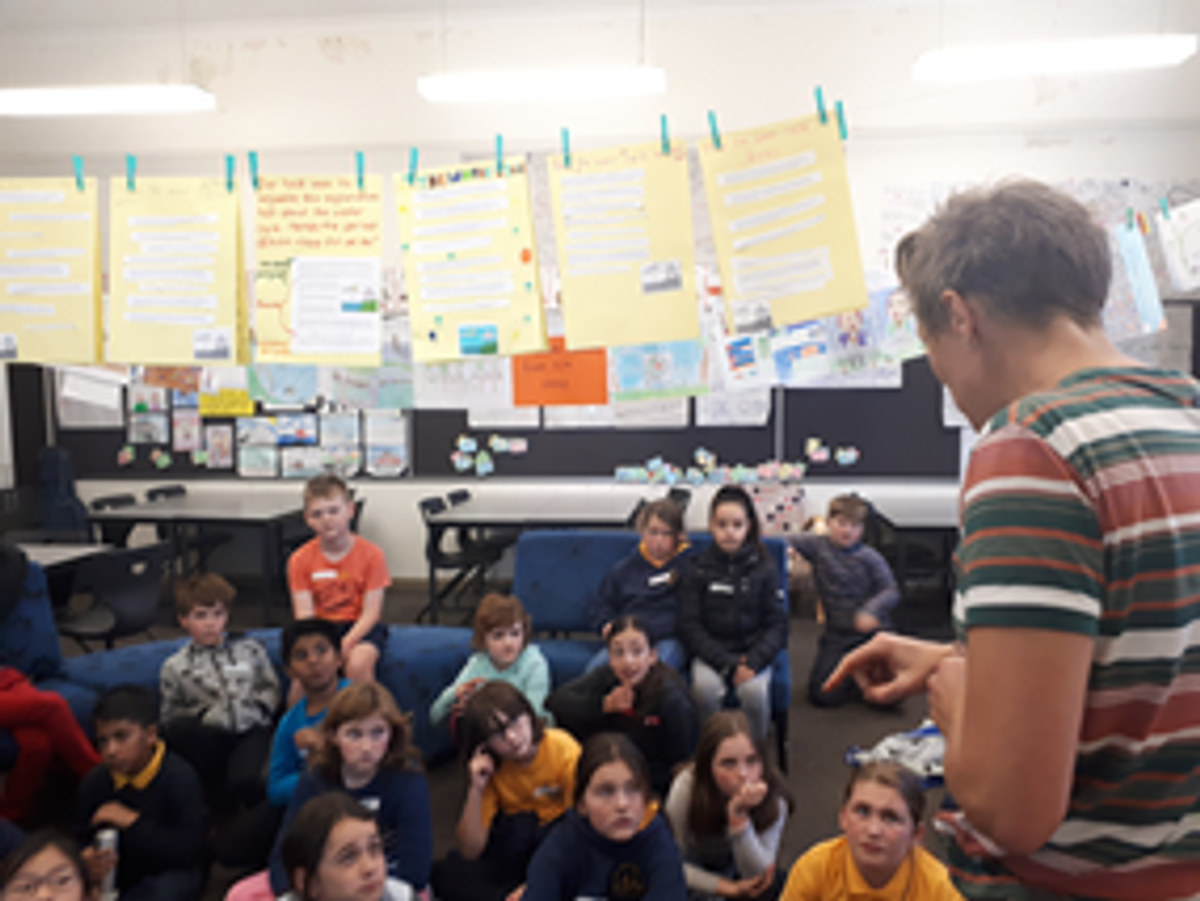Education News
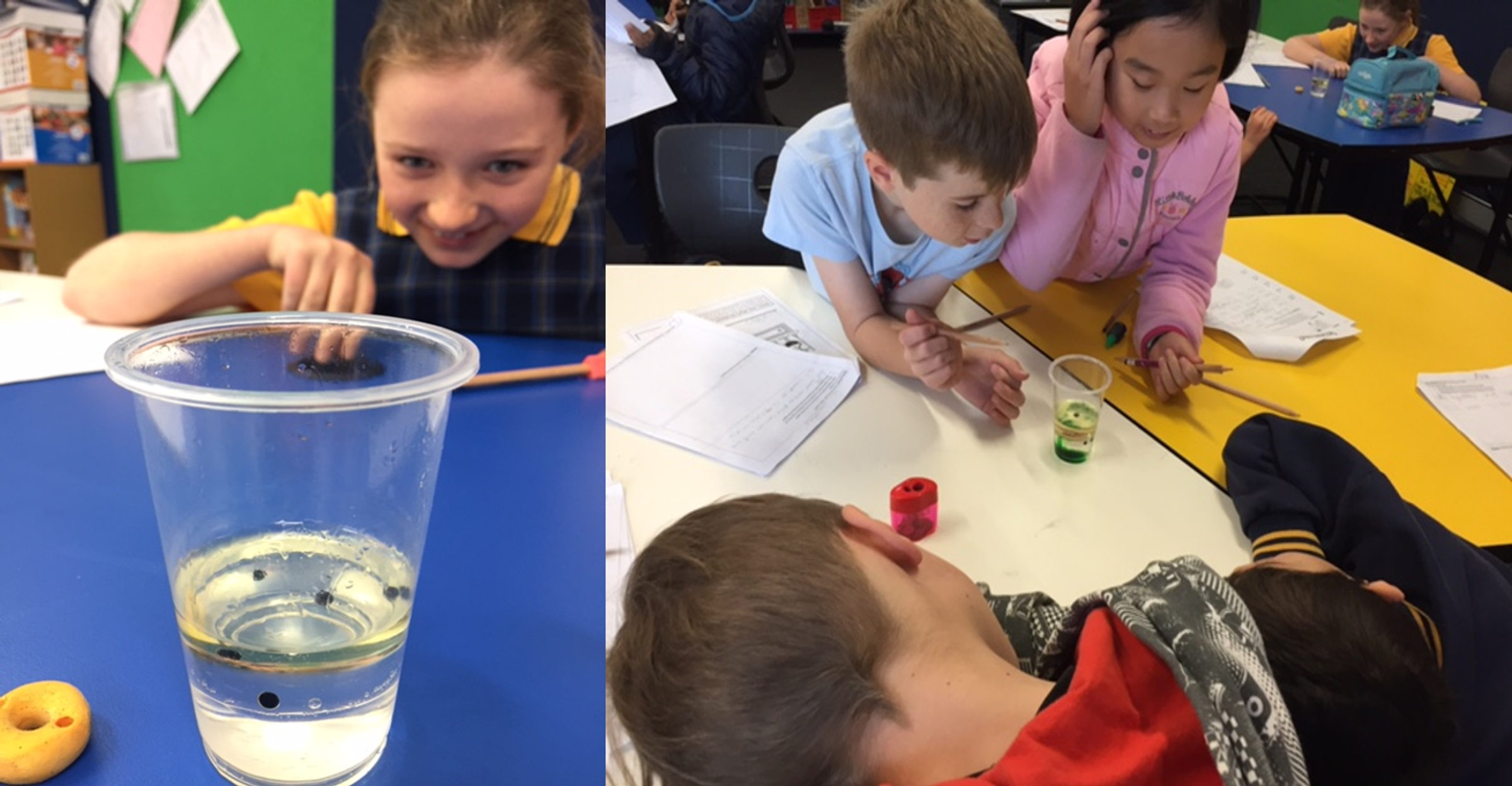
3/4 Science incursion
As part of the Grade 3/4 inquiry unit on Earth Science students participated in an incursion from Hands On Science. Here is a reflection on the day written by some of the students - Mia & Bidaya and Harriet & Poppy from Room 24.
Grade 3-6 Living and Growing Program (Sex Ed)
We will begin our sex education program with a parent information session which will be held on Tuesday 17 July at 7:00 pm. The Sex education program runs over three sessions beginning July 24 through to August 10. The grade 5/6 program will run on a Tuesday and the 3/4's on Fridays. Information regarding the program will be sent out next week.
Anti-bullying Workshops with Kate Wilde
Over several weeks, Kate Wilde from The Human Development Workshop has worked with staff and students at MPW. She ran a whole staff Professional learning session as well as behaviour and anti-bullying workshops for all of our grade 3 to 6 classrooms. It is great to report the positive impact this has had on staff and students who are using the language and strategies presented to us.
In response to our Student Attitudes to School Survey data collected last year along with findings from grade 4-6 focus groups, it was evident that students felt the need for training in this area. Anecdotally, we are happy to report that over the past few weeks, we have seen a shift in some of these behaviours. Some students who were using Mouse behaviour (See below) are now standing up for themselves, using dolphin behaviour. Many are practicing solving problems as dolphins do.
During the workshops, students took the opportunity to reflect on their own behaviours and how they respond to others by learning about the following animal behaviour metaphors:
Dolphin, Mouse, Crocodile, Fox Behaviours
When faced with conflict most of us have a ‘default’ setting, a way of behaving that is often unhelpful and sometimes makes things worse. The three common responses are spelt out below, along with the alternative - Dolphin behaviour (assertive). It takes practice but when dolphin behaviour becomes a habit children resolve conflict more effectively, feel better about themselves and relate better to their friends and family.
Mouse (Passive)
People who act like a mouse are afraid to express their feelings and often don’t stand up for themselves. When expressing an opinion may do it in a way that suggests they can be easily persuaded to change their mind. Even when they know they have been treated unfairly they do little, resulting in frustration and sadness. The problem with the behaviour is that it makes them a target as others know they will not retaliate or take action when wronged.
Fox (Passive-Aggressive)
Fox behaviour involves sending a message of anger or disapproval in a non-direct or unclear way. A hostile message with an intention to hurt or pressure without letting others know exactly what they’ve done wrong or how to fix it. Behaviours include dirty looks, spreading rumours, excluding others, etc. The main problems with this behaviour is that it can be very hurtful to others, including friends and often leads to ‘payback’ where groups will start habitually interacting with one another on this level.
Dolphin (Assertive)
Dolphin behaviour involves the ability to express rights and needs in a positive way and to try and solve problems, rather than just gain a personal win. The assertive child is real with themselves about what they feel but tries to remain in control of their feelings when resolving conflict. The ingredients for talking like a dolphin are:
- ‘I’ - taking responsibility for your own thoughts and ideas
- ‘Feel’ - letting the other person clearly know how their behaviour made you feel
- ‘Solution’ - coming up with a solution to the problem
(i.e. I feel disappointed you didn’t return my DVD when you promised. I will call you tonight to make sure you put it in your bag for tomorrow)
Dolphin behaviour isn’t a cure all, but is certainly more generally effective and useful for children (and for adults!!) than the alternatives.
Here are some reflections from Room 7 and 8:
I liked the Anti-bullying workshop because it was fun. I learned a new word called “Bystander”. I learnt how bullying can affect people at its highest level. Michael A Room 8.
- I learn from Kate that ‘bystanders” support the people who are doing the bullying. Zillah S Room 8.
- At the workshop, we learnt about bullying. They were talking about Mouse behaviour, Dolphin behaviour, Fox behaviour and Crocodile behaviour. Alanna D Room 8.
- People bully people on the internet. When someone is bullying, normally someone sees it. Lachlan A Room 8.
I really liked the stuff we talked about!
There are four behaviours. The first behaviour is Dolphin. Dolphin behaviour is kind, helpful and caring. They always solve a problem before it gets too big.
The next one is mouse behaviour. Mouse behaviour is when someone does something and you say, “Oh I don’t care. I didn’t really want it anyway’ and then they keep on doing it. (It doesn’t solve the problem.)….
The next one is crocodile behaviour. Crocodile behaviour is when someone keeps yelling and yelling at you.
The last one is Fox behaviour. It is when someone talks about you behind your back and you don’t know!
We also learnt about bullying and how you shouldn’t do it.
We also played Night at the Museum.
I LOVED IT WHEN KATE WILDE CAME! Olivia S Room 8.
The following is a quote from Zarah S Room 8
I learnt that sometimes I can use Fox behaviour and all of them. I still do Dolphin behaviour.
When Kate Wilde came to our classroom, she taught us all of the animal behaviours. There is Mouse, Crocodile, Fox and Dolphin.
Mouse is quite shy and when something would happen she or he wouldn’t do anything about it and they would just say, “Okay” or “I doesn’t matter.”
Crocodile behaviour is like when it’s mean, it shouts, and it can really hurt someone’s feelings. I don’t recommend being that kind of person when you are solving a problem.
Fox is when there is a group of friends and one of the friends says something behind their back and the other person doesn’t know about it. Then, when they find out, they get mad and the next day they don’t talk and the mean person doesn’t know what’s going on. I don’t recommend solving a problem like this either because you can’t solve a problem without talking and agreeing.
Dolphin is a good way to solve problems because if two people were playing a game and then a person comes and takes the ball that they were playing with and then they say, “Please give that ball back and if that doesn’t work, try and try again. But if that doesn’t work, go and get a teacher.
Grace Room 7.
In the Kate Wilde workshop, we learnt about “bystanders” and cyber bullies. We did role-plays about bullying and by-standers and we learn more about different animal behaviours like dolphin, crocodile, fox and mouse. It was fun.
Apostolos K Room 7
Two important things Jordan took away from Kate’s session was, “Now I know what it feels like to be bullied’ and, “Now I know the key words, I feel I have the solution”.
Jordan V Room 7
In discussing the animal behaviours, Jonathon said, “The dolphin behaviour is the only good behaviour. The dolphin behaviour is good because you stand up for yourself and solve problems.”
Jonathon N Room 7
Kate also taught us about by-standing and Bullying. We also played some games. I was really surprised that girls cyber-bully more than boys. He also went on to say, I think the Kate Wilde workshop was fun, interesting and important.
William H Room 7

